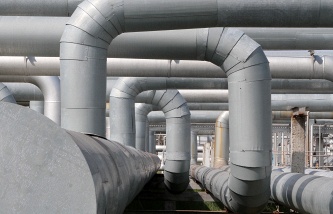
Putin pledges reliable energy supplies to Europe – ITAR
June 28, 2014
Sarajevo marks century since ‘bullet that changed history’
June 28, 2014WHEN Georgia signed an association agreement in Brussels today, it took a significant step towards closer political and economic ties with the European Union (EU). That includes a free trade deal, under which Georgian exporters will be able to sell their goods in the EU without tariffs–with the sole exception of garlic.
In the polarised world of Georgian politics, closer integration with the West is one of the few areas on which the governing Georgian Dream coalition and the opposition United National Movement have been able to agree. In fact, the only real disappointment for most of Georgia’s politicians is the absence of a “membership perspective”.
Georgia will commit to implementing hundreds of EU directives in order to integrate into the EU’s internal market over the next decade. This amounts to a comprehensive programme of reform covering everything from economic growth and governance to human rights, democracy and the rule of law.
The EU has been quick to stress the advantages. For example, the abolition of over €5m ($6.8m) in import duties on basic agricultural goods will benefit country’s depleted agricultural sector. Regulatory certainty, access to new markets and higher production standards will stimulate investment, modernise production and improve labour conditions. The quality of goods on the Georgian market will improve, and Georgia’s competitiveness will increase, according to the EU. Eventually the EU predicts that Georgia’s economy will grow by an additional 4.3% per year.
But not everyone in Georgia is convinced by such claims. According to two Tbilisi-based economists, “Georgia rushed into this agreement without a careful “in-house” analysis of the deal it is getting into.” The real question is whether Georgian producers can gain market share within the EU, which is unclear.
Moreover, they say, the reforms will exact a number of costs, particularly in the short-term, while the long-term benefits are “very uncertain”. For example, higher production standards for goods sold in Georgia will push up prices for ordinary consumers, and may cause them to shop in open-air markets-where the standards will be much harder to enforce.
A new report by the Legatum Institute highlights the need for Georgian politicians to embrace the relevant EU directives because they are good for Georgia, not simply because they might speed up access to the EU. “These are deep changes that cannot be made-and probably will not work-if Georgians do not feel that they “own” them,” it concludes.
That matters, not least because Georgia’s anti-western political parties, although in the minority, are growing in strength. The Alliance of Patriots, which wanted to delay signature of the trade agreement and rejects talk of NATO membership, won 4.72% of the vote in local elections, held on June 15th, whereas Nino Burjanadze’s like-minded coalition won 10.23%. They will be quick to seize upon any domestic disenchantment caused by the reform process.
The biggest uncertainty is how Russia will react. Russia is now Georgia’s fourth-largest trading partner since Moscow lifted an embargo on Georgian wine and mineral water in 2013. On June 25th Sergei Lavrov, Russia’s foreign minister, said Russia would look at relevant “protective measures” permitted by the World Trade Organisation if the agreement impacts on the free trade agreements within the Commonwealth of Independent States.
In fact, Moscow has a range of tools at its disposal should it choose to play dirty, as a new report from the European Council on Foreign Relations points out. For example, it could foment unrest in Abkhazia and South Ossetia, introduce an economic embargo, expel Georgians living in Russia or support Georgia’s anti-western politicians. At various stages over the last two decades, Russia has done all this and more. And as the report implies, old habits are as hard to break in Moscow as elsewhere.
Tbilisi hopes to resolve any problems caused by the agreement with Moscow through technical consultations. That approach is based on the government’s optimistic belief that Georgia can integrate with the West without upsetting Russia.



